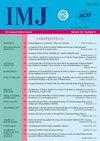COMPARATIVE ASSESSMENT OF β-DEFENSIN LEVELS IN PATIENTS WITH CHRONIC ECZEMA OF VARYING SEVERITY
Q4 Medicine
引用次数: 0
Abstract
The infectious nature of the process in microbial eczema or complications of bacterial infection of true eczema indicates an impairment in the immune system, especially innate immunity. Primary pathogen receptors, the complement system, phagocytosis, interferons, and endogenous antibiotic peptides play a crucial role in the body's innate defense. The first line of defense is provided by antimicrobial peptides, which are non−specific factors of humoral immunity, and have endotoxin−neutralizing and immune modulatory activity, as well as act against a wide range of microorganisms. One of them is defensins, which are cationic amphipathic peptides with a length of 30 to 42 amino acids with a three−stranded β−plate structure containing three disulfide bonds. The main producers of human β−defensins (Human Beta Defensin) are various epithelial cells, including keratinocytes. Defensins have antibacterial, antiviral, antifungal and antiparasitic effects. β−defensins are active against gram−positive and gram−negative bacteria, in addition, they exhibit anti−yeast activity. In patients, the severity of dermatosis was determined based on the calculation of EASI (Eczema Area Severity Index), the content of Human Beta Defensin was done with enzyme−linked immunosorbent assay, in the serum of patients with chronic eczema, it was increased 15.9 times compared to the control group. Quantitative levels of Human Beta Defensin 2 have been shown to be closely related to the disease severity. The content of Human Beta Defensin 2 in the serum of patients with chronic eczema may be a marker of the dermatosis severity. Key words: chronic eczema, true and microbial eczema, pathogenesis, β−defensin, severity.不同严重程度慢性湿疹患者β-防御素水平的比较评估
微生物湿疹过程的传染性或真正湿疹的细菌感染并发症表明免疫系统,特别是先天免疫受损。主要病原体受体、补体系统、吞噬作用、干扰素和内源性抗生素肽在身体的先天防御中起着至关重要的作用。第一道防线是由抗微生物肽提供的,它们是体液免疫的非特异性因子,具有内毒素中和和免疫调节活性,并对多种微生物起作用。其中之一是防御素,它是一种长度为30至42个氨基酸的阳离子两亲肽,具有包含三个二硫键的三链β-板结构。人β-防御素(人β防御素)的主要生产者是各种上皮细胞,包括角质形成细胞。防御素具有抗菌、抗病毒、抗真菌和抗寄生虫的作用。β防御素对革兰氏阳性和革兰氏阴性细菌具有活性,此外,它们还表现出抗酵母活性。在患者中,根据湿疹面积严重程度指数(EASI)的计算来确定皮肤病的严重程度,用酶联免疫吸附法测定人β-防御素的含量,在慢性湿疹患者的血清中,它比对照组增加了15.9倍。人类β-防御素2的定量水平已被证明与疾病的严重程度密切相关。慢性湿疹患者血清中人β-防御素2的含量可能是皮肤病严重程度的标志。关键词:慢性湿疹,真湿疹和微生物湿疹,发病机制,β−防御素,严重程度。
本文章由计算机程序翻译,如有差异,请以英文原文为准。
求助全文
约1分钟内获得全文
求助全文
来源期刊

International Medical Journal
医学-医学:内科
自引率
0.00%
发文量
21
审稿时长
4-8 weeks
期刊介绍:
The International Medical Journal is intended to provide a multidisciplinary forum for the exchange of ideas and information among professionals concerned with medicine and related disciplines in the world. It is recognized that many other disciplines have an important contribution to make in furthering knowledge of the physical life and mental life and the Editors welcome relevant contributions from them.
The Editors and Publishers wish to encourage a dialogue among the experts from different countries whose diverse cultures afford interesting and challenging alternatives to existing theories and practices. Priority will therefore be given to articles which are oriented to an international perspective. The journal will publish reviews of high quality on contemporary issues, significant clinical studies, and conceptual contributions, as well as serve in the rapid dissemination of important and relevant research findings.
The International Medical Journal (IMJ) was first established in 1994.
 求助内容:
求助内容: 应助结果提醒方式:
应助结果提醒方式:


